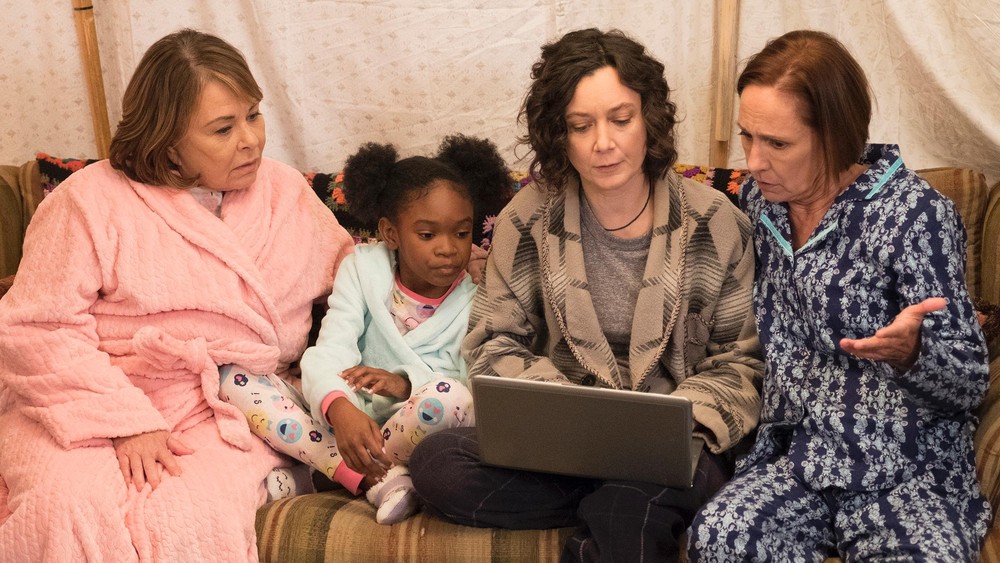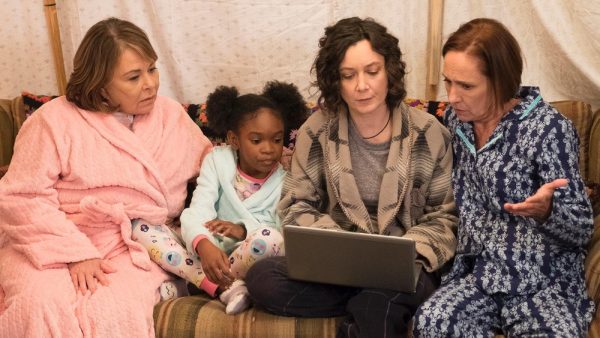
What Roseanne’s Muslim Episode Got Right And Wrong
- By Elisa Meyer --
- 10 May 2018 --

The Television Show Did Some Things Right While Ignoring The Bigger Picture
Homer Simpson once called television “teacher, mother, secret lover.” And that was before hundreds of channels and On Demand programming. The average American watches over five hours of television today. Television has replaced the public forum where individuals go to be entertained and learn.
What Roseanne’s Muslim Episode Got Right And Wrong[/tweetthis]
So Roseanne Barr’s resurgence of her old show Roseanne is almost like a historical examination. When it aired in the 1990s, it was a display of working-class family values with a political leaning to the left. The family struggled but also were liberal about most social issues. That has changed with the new iteration of the show with Trump as president. Roseanne’s television family has voted for Trump, but are still living in dire conditions. They struggle for money and adequate healthcare. The pro-Trump support of Barr on social media has added to the controversy about the show.
tonight's show is about the impact of legal and illegal immigration on our family.
— Roseanne Barr (@therealroseanne) May 8, 2018
But what people are talking about now is the most recent episode titled “Go Cubs.” The episode deals with a Yemeni family moving in next door to Roseanne. She immediately begins to fear they are a terrorist cell. Through a series of mishaps, Barr’s character learns to appreciate the family as human beings and ends up defending the mother against bigots.
People have been praising the show for demonstrating that Islamophobia is a product of fear and to have a character aligned with Trump to realize that there is more than broad stereotypes. While it is essential to have increased media exposure for Muslims, this is not as great as people have given it credit.
First is the problem of the symbolism of the individual. While Roseanne has a cathartic moment, it does not seem genuine. In fact, she now respects and cares for a single family, but still may harbor deep-seated anger. We have seen in cases of prejudice how bigots will ignore the identity of friends because they are “one of the good ones.”
Second, the change happens quickly. It is understandable that in a narrative arc of 25 minutes, change has to happen rapidly. But that is the problem. The comparison would be Archie Bunker, the discriminating character played by Carroll O’Connor in the 1970s sitcome All in the Family. Bunker did not have a transformation after a single, or even small series, of exchanges. If anything he doubled down on his stereotypes. This allowed for an ongoing dialogue that better represented what was going on in reality.
Third, is that Barr has been supporting the Trump administration, while O’Connor was a sincere supporter of civil rights. Having the character be so unlike the actor performing the role shows that it is an examination of how certain people think. We don’t know if Roseanne and Barr are the same.
At the end of the episode Roseanne tells the Muslim family “we don’t hate you…we’re scared of you.” But how does the show create exposure? Are we so void of alternative options that a bit in a sitcom that is losing ratings rapidly is held in such high esteem? Over 75 percent of Americans do not personally know a single Muslim. Maybe it is time to show more characters who are Muslim and not make a big deal about it. Or have more shows with Muslims as central figures like Master of None. Without representation all that is left is fear.


















